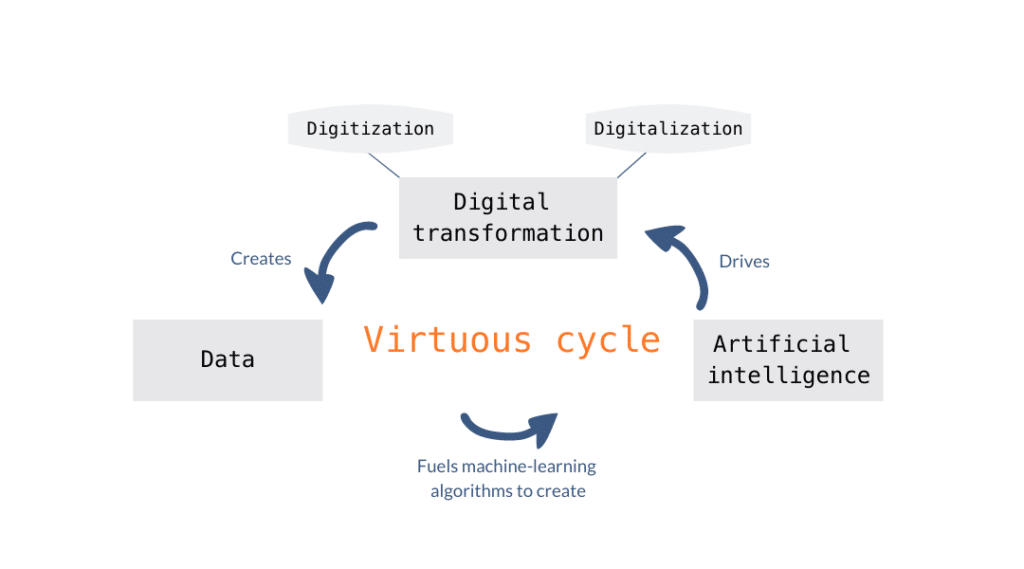Digital transformation refers to the entire process and impact of using new digital technologies to solve problems. Digital transformation can take place in a company, a sector and even at a societal level. Both analogue-to-digital conversion (the transformation of analogue information into digital form) and digitisation (the restructuring of processes around new digital technologies) are prerequisites for digital transformation. As we will see, new innovations and technologies that drive digital transformation are increasingly data-driven. A large number of these innovations are based on machine learning models and artificial intelligence.
Digitisation refers to the conversion of analogue information into digital form, or more precisely, the production of digital versions of analogue or physical things, e.g. paper or cassettes. Essentially, digitisation is the conversion of "things" into bits and bytes in order to store them digitally. Digitisation has been around for several decades. For example, pictures used to be stored in analogue form in the form of physical photo albums. Today, we store photos on our mobile phones, computers or in the cloud.
Digitisation (in the sense of analogue-digital conversion) is very closely related to digitisation (in the sense of restructuring); this refers to the restructuring of processes and other areas of our lives around digital technologies and digital information. One type of digitalisation makes the other type of digitalisation possible. For example, a hospital can digitise existing patient information, for example their personal data, medical reports, lab results and X-rays from paper into digital form. Based on this, the hospital can then digitise the process of how patients receive their medical reports.
In the past, this process might have gone as follows: The doctor wrote down the findings by hand, a secretary transcribed them with a typewriter and sent them together with the lab results by post. Digitising these processes would mean sending the digitised medical report and lab results by email. The reason why organisations and companies are increasingly digitising their processes is that it is more cost-efficient and faster for them and also easier for the clients.



